Special Reports
Govt Must Do All to Prevent Monopoly in Telecom Sector, Allow Telcos Breathe With Lesser Taxes – Ogunbanjo
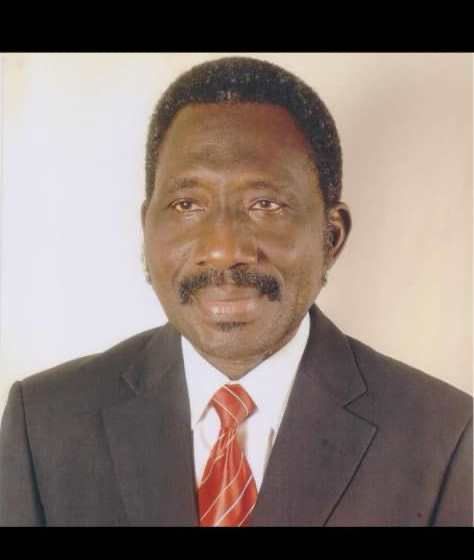
Chief Adeolu Ogunbanjo, President, National Association of Telecommunications Subscribers (NATCOMS) in this no holds barred interview with The Guardian x-rays the state of the economy and how the President Bola Tinubu-administration and its policies is affecting the telecom sector, among other developing events in the outgoing year.
*What is your assessment of the general state of the Nigerian economy?*
May 29, 2023 saw the emergence of subsidy removal, that’s fine. Sincerely few individuals, like powerful individuals, you know were conning the resources of the petroleum sector in the country and it needed to be stopped, which was done by President Bola Tinubu. However, the unification of the naira was the mistake the current President did. Those two things shouldn’t have come in the immediate succession.
Subsidy removal, yes, but the unification of the naira was the big blow that actually scattered Nigeria’s economy. Subsidy removal will have its effect, yes we do appreciate that, but to now unify the naira plus subsidy removal that i think in my mind was the mistake the President made.
That is now giving rise to a situation where you now have to drive taxes to make more money for the government. That will lead me to the excise duty of 5% on the telecom sector.
*What is your reaction to the 5% excise duty on the telecom sector?*
Yes, we are currently in court and we will still continue to pursue that, because, recently somebody hinted me that they (the government) may revisit the excise duty tax, which again will spell disaster for the citizenry. I must say that if you remove telecoms and ICT, a lot of people’s business will suffer – that is the only thing we are now leveraging on to showcase ourselves and businesses on social media platforms like Facebook, Instagram, X which was formerly Twitter and WhatsApp that we are enjoying today.
However, on taxes, they (the federal government) should leave telecoms alone, because there are over 40 different types of taxes that are killing the industry. Unfortunately, the banks are not helping matters in the telecoms industry as they are still owing the Mobile Network Operators (MNOs) over N200 billion as we speak.
A huge amount that the telcos would have spent on network expansion, quality of equipment to deploy their services and all that. Well unfortunately that’s the economy as I see it.
*Recently, the telecoms industry ecosystem was disrupted by media reports that MTN Group was in negotiations with Emerging Market *Telecommunications Services (EMTS) – owners of the nation’s fourth GSM operator- to acquire 9mobile’s spectrum. What’s your view about this deal?*
We’ve been back and forth on this and I have had the course to put my mouth on this issue, and again I will say that MTN is going through the backdoor to acquire that spectrum. I’m sorry, but that’s the sad truth and the regulator shouldn’t encourage that at all, they should keep it open.
However, coming to your question, unfortunately with just about 6% of the market share, they (9mobile) are not doing that well. For me, I really do not know why they could not recapitalize and why they want another network to acquire them and that another operator (MTN) will now become the dominant service provider. It’s not going to be tidy for the telecoms sector. And in my opinion it should be discouraged. However, even if the merger and acquisition should be done, the regulator should keep it open.
Again, you may want to ask, Why can’t, Glo and Airtel buy it (9mobile) at least they are about, I think one is 20 something per cent and the other about 30 something per cent market share and the regulator should encourage those ones to come to terms with building their network as well.
*Considering 9mobile’s debt history, do you think the other MNOs that you made mention of, have the liquidity to acquire 9mobile?*
They will and they can. Don’t forget that there are some funds from multilateral finance organizations. If they apply, it will be granted, because it’s telecoms and we have the market, we’ve got the subscribers base, we’ve got everything. But for 9mobile, they should at least go to town and recapitalize and then come up again and increase their market shares rather than just having a single digit market share which is too low to play and dominate in the Nigerian Telecoms sector, and perhaps that might be the driving force for the board members to say, look we are still single digit market penetration, so why shouldn’t we just sell out.
But, in my honest opinion, I oppose selling out, they should rather recapitalize, they shouldn’t sell out. But if they are going to sell out, it should be thrown open back to the NCC and I expect the NCC to do the needful.
*Some stakeholders believe that, should MTN acquire 9mobile, it will make them more powerful. Do you share in the belief sir?*
Very well, Yes. They will be too powerful. They will have bigger control of the market and dictate the direction of things in the sector. In their (MTN) early days they had a lot of funds to play with at a very low interest rate in the 2000-2001 days. They’ve been favored in a way, because the South African Government is ready to assist them as well, plus the fact that multilateral financial organizations are also ready to fund them because of their success stories. But nonetheless, others should not die or go out of extinction because of one particular network operator. They should be encouraged to compete and thrive.
The moment MTN acquire that (9mobile) with their 43 or 44 per cent market share, that means they will have a minimum of about 50 something per cent, and that is half of the Nigerian telecoms market. They’ll have so much power and control over the sector and that means they will be dictating the pace. While I agree it’s a free market, nonetheless we can’t afford to have one dominant force in this space.
Our President is marketing the country’s economic potential to attract more foreign direct investments, so it will be wise not to kill the ones available here. We should encourage others to be major players in the sector. Airtel is there also, they have about 20 whatever per cent, the other one (Glo) is also about 20 something percent. Encourage these ones as well to be major players in the sector, they shouldn’t allow only one player to overtake the entire industry, which is going to be a disadvantage to the benefits of the other players.
Aside from that, if you look at Multichoice, I’m sorry, I don’t know if I can talk about that, they have dominated the pay TV sector in the country, and they have made three increases this year alone to their subscription rate. We don’t want to see that happen in the telecoms sector. No! we don’t. They will be dictating the pace because they have the volume and they control more than 50 per cent market share. And that won’t be tidy for the Nigerian telecoms industry.
*So, what is your advice to the NCC, in terms of strengthening the operations of the Nigerian Telecoms Industry?*
As a regulator that they are, they should regulate and ensure that every Mobile Network Operators (MNOs) competes pretty well within the space and also ensures that the competition is healthy. They should regulate the entire telecoms sector without giving any form of preferential treatment to another at the detriment to the growth and development of others.
Let NCC keep its operations open and be fair to all parties concerned by ensuring that they are transparent in whatsoever spectrum that they want to sell or return or give back to the NCC, so that other MNOs can take advantage of the potential in the market and if possible acquire this spectrum.
For instance, I know that some of them have now started deploying the 5G, though China is already looking at the 6th Generation already, but let’s get ours right first. So, it’s good, let them keep exploring other things, but to acquire another MNOs spectrum is unacceptable. But, if the likes of Airtel and Glo say, look we don’t have the money oo, then it is good and fine for a takeover. But, it has to be through the right channel and not the backdoor.
Now, ALTON, the Association of Licensed Telecom Operators of Nigeria is now saying if the government decides to introduce any other taxes, we are going to pass it on. Well on the part of the consumers we will stop the government from going ahead to introduce any taxes, because already the sector is faced with multiple taxes.
Anambra is a fantastic state, they have made a law that makes it free with no tax on laying the Right of Way (RoW) cables. All states should be like Anambra. Governor Charles Soludo, wonderful governor, with what he has done, he is encouraging telecom sector to come to the state and invest by giving them economic friendly terms. And I want other governors to emulate that too.
*Finally, what is your call to action for the Federal Government, NCC and other stakeholders in resolving this spectrum trade off issue?*
Thank you very much for that question. First, let them stop harnessing too much taxes in the telecoms Industry. Let the government now expand their tax net, not just by increasing tax policies, but by getting more people into paying tax. For instance, if we have about 20 per cent of people paying tax now, they should extend it to about 40, 50, or even 60 percent of people to pay tax and they can get more money from there.
The telecoms industry is really suffering, so to help them gain a good balance, let them declare telecoms infrastructure as a critical national asset. Maybe it is because NEPA mast is dangerous to their health, that’s why they are critical national assets, so why shouldn’t all telecom base stations be included as critical national assets. They should do that to avoid poor services and loss to the operators.
Each time, we (NATCOMS) make noise about poor services, ALTON, will say they have burgled our base stations, they have removed this generator, they have killed this and they have killed that. We hear that story all the time, so, the moment they become key critical assets, then it will be protected and service quality of the network operators will be improved upon and will now be enjoyed by the subscribers.
News
Surveyor General Speaks On Climate Change, Calls for Urgent Funding to Mitigate Devastating Impacts
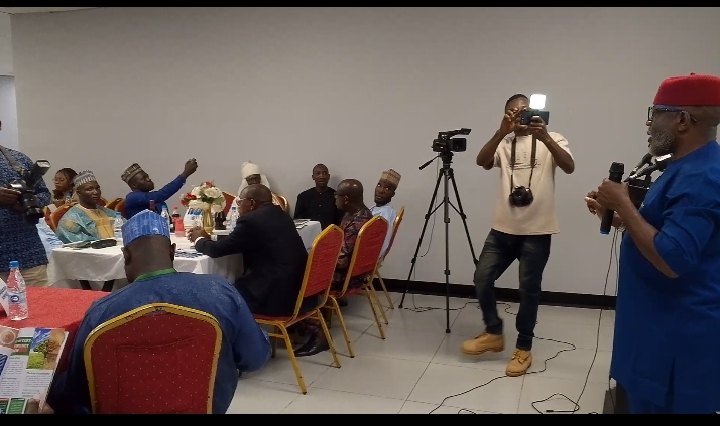
The Surveyor General of the Federation, Mr. Adebomeyin Abdulganiyu, has called for increased funding to tackle the pressing challenges posed by climate change in Nigeria, emphasizing the need for urgent action to protect vulnerable communities.
Speaking at the launch and induction of Ambassadors of SDGs and Ecosystem Preservation Initiative, a Climate Change Education and Awareness held in Abuja on Thursday, Abdulganiyu stressed that climate change is a harsh reality affecting millions of Nigerians daily, from coastal erosion in Lagos to desertification in the North.
“The impacts of climate change are real, and it’s our responsibility to provide communities with the data they need to adapt and thrive,” he said.
Abdulganiyu highlighted the crucial role of surveying, understanding and mitigating climate change impacts, citing the importance of accurate land measurements and geospatial data for effective urban planning, disaster management and environmental conservation.
“We need to know where we stand to make informed decisions about where we’re going, there is a need for government prioritization of surveying initiatives.” Abdulganiyu urged.
He further advocated for a dedicated Climate Resilience Fund to allocate resources for research and community-based projects aimed at mitigating climate impacts.
“This fund should empower local communities to take ownership of their futures,” he emphasized.
Also speaking, Comrade Dominic Ogakwu, founder of the Initiative and President of a foremost civil right group, Civil Society Groups for Good Governance, CSGGG, reiterated the importance of educating the public on climate change mitigation, global best practices, and associated risks.
Ogakwu noted that improved education and awareness could prevent disasters like the recent floods in Borno state.
The initiative plans to launch a seven-month campaign covering all 774 local government areas in Nigeria, employing a comprehensive education strategy.
Reports has it that Nigeria ranks 160th out of 180 countries vulnerable to climate change, with climate change threatening key sectors like agriculture, health, and hydropower.
Meanwhile the Surveyor General’s call for urgent funding and action, comes as Nigeria faces a critical moment in its climate change response and the need to protect the Nigerian people and planet.
Economy
Revolutionizing Nigeria’s Seed Sector: NASC Unveils Groundbreaking Portal
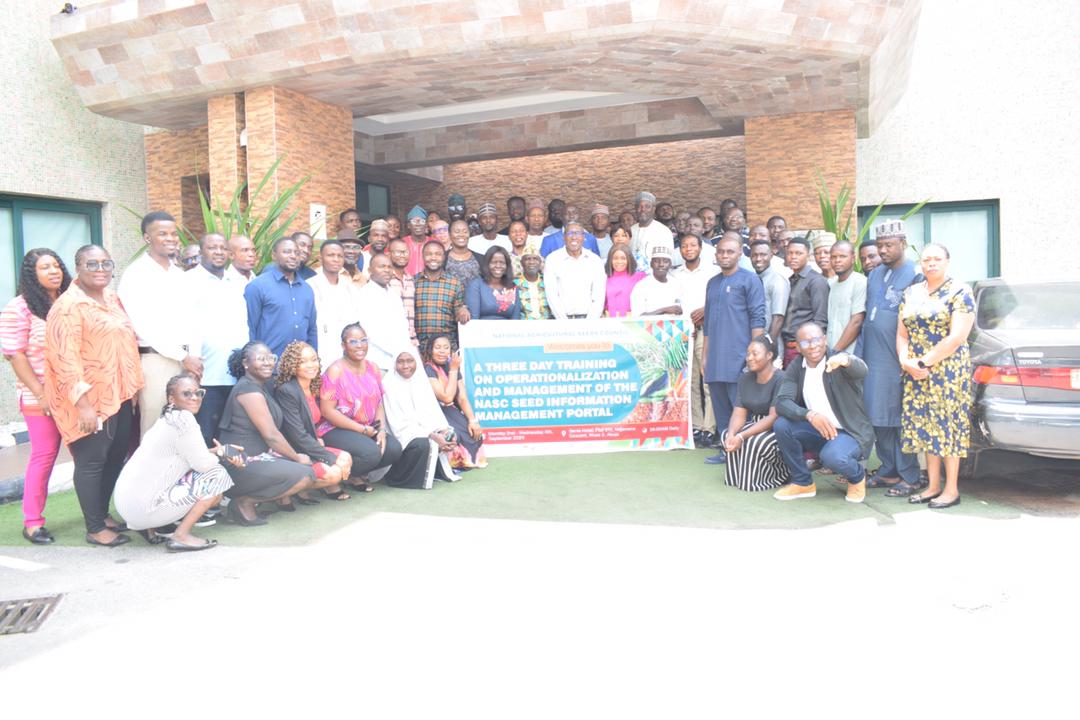
- Begins training for farmers, seed companies, others
In a bold move to transform Nigeria’s agricultural landscape, the National Agricultural Seeds Council (NASC), has disclosed plans to launch a cutting-edge Seed Information Management Portal. This innovative digital solution promises to revolutionize the seed sector, enhancing efficiency, transparency, and productivity for farmers, seed companies, and regulatory bodies.
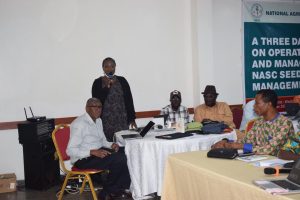
The development came to light at a recent capacity-building workshop held in Abuja, convened by the council to train key stakeholders ahead of the launch. The workshop tagged “Training on the Operationalization and Management of the NASC Seed Information Management Portal (NSIMP)”, brought together about 70 participants, comprising seed industry professionals, companies, seed council staffs, and farmers from different states and zones, to be trained on how to explore the portal’s vast potential.
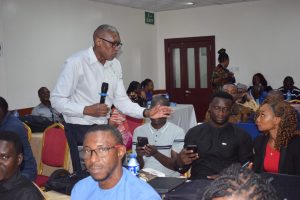
Streamlining Seed Sector Operations, Dr. Ishiak Khalid, NASC’s Director General, represented by Towolawi Oluwole, Director of Seed Information, Data Management, and Capacity Building, emphasized the portal’s critical role in managing the council’s information system. “The portal enables us to collate, and coordinate data from partners, agencies, seed companies, and farmers, providing valuable insights for more informed and harmonized decision-making,” he explained.
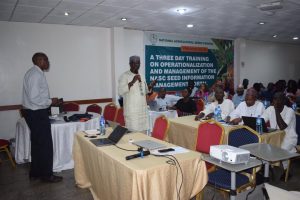
The portal’s integrated platform harmonizes disparate data sources, including seed trackers, codex, and other systems. This centralized approach facilitates real-time feedback from stakeholders, empowering the Seed Council to track industry trends, identify challenges, and respond effectively, according to Oluwole.
Also, Dr. Folarin Sunday Okelola, Ag Registrar of Plant Variety Protection (PVP) and Project Manager for the Agra grant, underscored the workshop’s significance.
He said; “Our goal is to build capacity for planning and coordinating the seed system, ensuring we meet Nigeria’s seed demand and harmonizing the whole process.”
“To effectively plan and coordinate our seed sector activities, we require accurate and timely data. This necessitates the integration of technology and electronic systems to enhance our traditional information gathering methods.
“Today, we proudly putting out our Seed Information Management Portal, a comprehensive platform that consolidates our existing tools, including the Seed Tracker and Seed Codex, into a single, user-friendly management information system.
“This innovative portal, accessible via web or Android, enables us to reach all stakeholders, regardless of category, and provides a streamlined approach to seed sector management.” He added.
The NASC Seed Portal is designed to benefit all stakeholders ranging from farmers, granting them an access to quality seeds, improved crop yields, and enhanced livelihoods, seed companies, ensuring efficient production, distribution, and sales tracking, regulatory bodies through an enhanced oversight, real-time monitoring, and informed decision-making.
By integrating comprehensive data management, analytics, and support tools, the portal aligns with the Critical Components of a Functional Seed System, as defined by CESSA. This ensures quality, accessibility, and sustainability in agricultural sector.
Please note that CESSA’s Critical Components of a Functional Seed System are quality seeds, seed availability, quality control, information management, policy & regulation, research & development, production & distribution, marketing & Sales.
Perhaps this will herald a new era for Nigeria’s Agriculture. NASC as a council, embracing digital innovation, through this groundbreaking portal will boost agricultural productivity, enhance food security, and support economic growth.
As the management training concludes Friday, participants are equipped to leverage the portal’s potential, ensuring a brighter future for Nigeria’s farmers, seed companies, and agricultural sector.
“This portal is a game-changer,” Dr. Okelola further opined. He reiterated that the council is committed to revolutionizing Nigeria’s seed sector, and the recent development is just the beginning.
Optimism high up, that with NASC’s Seed Information Management Portal, Nigeria’s agricultural landscape is set to flourish, harnessing technology to drive growth, productivity, and prosperity.
Special Reports
Cardoso, Deputies Under Scrutiny Over Alleged ‘Generous’ Approvals

The current leadership of the Central Bank of Nigeria (CBN) seems to be embroiled in a scandal that has sent shockwaves through financial and political circles.
Multiple credible sources within the bank have raised severe allegations against the governor, Olayemi Michael Cardoso, and his four deputy governors, accusing them of gross misuse of office to enrich themselves at the institution’s and the nation’s expense.
These allegations fly in the face of Governor Cardoso’s stated mission to reform the CBN and restore its integrity following the controversial tenure of his predecessor, Godwin Emefiele.
Almost a year into his leadership, the promise of transparency and accountability appears absent, leaving many questioning whether the reforms were ever genuine.
Among the most egregious allegations is the reported upgrade of annual housing allowances for the governor and his deputies to nearly N1 billion each. This staggering sum is even more scandalous considering that all five officials already reside in opulent official residences in the upscale Maitama district of Abuja. Such an absurd allocation, sources say, is indefensible, especially when viewed against the backdrop of a struggling Nigerian economy and widespread poverty.
“What justification can there be for this level of indulgence?” asked a senior CBN official who requested anonymity for fear of incurring the wrath of the governor. “The CBN’s leadership should exemplify modesty, not opulence.”
In another shocking revelation, it has been alleged that Cardoso and his deputies upgraded their international travel privileges from business class to first class. This comes at a time when the Nigerian economy is on life support, with the naira continuing its free fall against major global currencies and inflation eroding the purchasing power of ordinary Nigerians.
It is reported that a first-class ticket to New York from Abuja, which costs upwards of $15,000, is now standard for the CBN’s top brass.
“How can they justify such luxury when the average Nigerian is struggling to afford necessities?” another source within the bank lamented.
The allegations do not stop there. It is reported that the governor and his deputies have also upgraded their foreign travel allowances to more than $7,000 per night. These officials could pocket over $50,000 for a week-long trip, excluding additional perks such as entertainment and extra baggage allowances.
“This is a brazen display of greed,” a source close to the matter stated. “How can they justify such largesse when the Nigerian minimum wage is a paltry 70,000 naira a month?”
The CBN governor is also accused of hiring consultants whom he pays over N30 million per month, an amount that dwarfs the combined monthly salaries of all CBN directors. These consultants, who reportedly lack experience in monetary policy institutions like the CBN or the International Monetary Fund (IMF), are ostensibly performing the same duties as the bank’s directors.
For instance, official papers showed that Mr Cardoso hired one Nkiru Belonwu as his media consultant for a monthly pay of N30 million. Worse is that Belonwu has been illegally promoted to take the seat of the director of corporate communications as an observer in the bank’s exalted Monetary Policy Committee (MPC) meetings against the usual practice.
Belonwu, it was said, does not have a media contact base and has never related with the media since she resumed office with Mr Cardoso in 2023.
“This is nothing short of a financial scandal,” a CBN insider said. “Why is the CBN paying such astronomical fees for expertise that has yet to yield tangible results in improving the economy?”
There are also allegations of non-competitive and secretive hiring practices under Governor Cardoso’s leadership. Hundreds of CBN staff have reportedly been sacked without due process under the guise of organisational restructuring, only to be replaced by new hires through covert means.
In one particularly troubling case, a retired police Assistant Inspector General (AIG) was reportedly appointed as a department director, contravening public service rules.
Added to the growing list of allegations, it is claimed that the governor and his deputies have been channelling their hefty allowances through the director of procurement and supply services department rather than the human resources department. This unusual arrangement has raised concerns about potential efforts to obscure these payments from auditors and to conceal the true extent of their earnings.
Perhaps the most damning of the allegations is that Governor Cardoso and his deputies reportedly increased their allowances and benefits without the approval of the CBN board, which President Bola Tinubu had not constituted at the time these upgrades were enforced.
“This is a clear abuse of power,” said a CBN official familiar with the matter. “Without board approval, such actions are unethical and illegal.”
In the light of these serious allegations, many within the CBN have called for Governor Cardoso and his deputies to either affirm or deny the claims. The atmosphere at the bank is reportedly tense, with staff morale at an all-time low following the wave of sackings and what some describe as a “toxic” management style.
A very senior staff member at the bank’s headquarters told this reporter that there is currently palpable apprehension over a rumoured plan by the management to engage in another shakeup that would result in massive sacking or redeployment of staff (especially from head office) to the various branches in the states.
Governor Cardoso, who has often touted himself as an enforcer of due process, now finds himself at the centre of a storm that could have far-reaching implications for the CBN and the Nigerian economy, as the public awaits his response.
Efforts by this newspaper to get the reaction of CBN spokeswoman Sidi Ali were abortive as she refused to respond to questions sent to her telephone line. Her number was also unreachable for calls.
Original Source; Leadership.ng
-
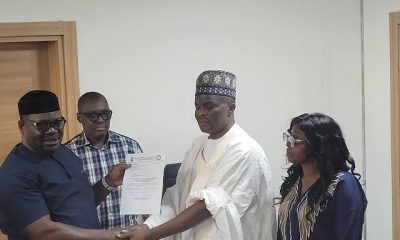
 Business12 hours ago
Business12 hours agoOkpella Monarch: Obaseki Ratified Kingmakers Decision, End 5years leadership Vacuum
-
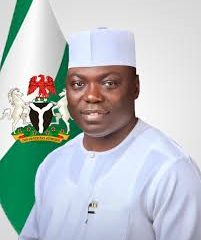
 News24 hours ago
News24 hours agoDemolition: Press Under Siege As Taraba Govt Issues Ban Memo
-

 Banking8 hours ago
Banking8 hours agoFree Food Saga: Akpabio quoted out of context-CSO
-

 Foreign13 hours ago
Foreign13 hours agoSci-tech innovation fuels China’s high-quality development
-

 Entertainment5 hours ago
Entertainment5 hours agoDavido Declares ‘Timeless’ His Best Album
-

 Entertainment5 hours ago
Entertainment5 hours ago‘Adire’ Secures Four Nominations at the Best of Nollywood Awards
-

 Foreign7 hours ago
Foreign7 hours agoQinling Mountains better safeguarded with comprehensive digital platform
-
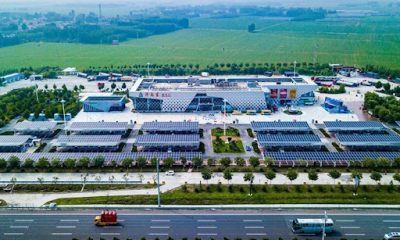
 Foreign7 hours ago
Foreign7 hours agoExpressway service station in Shandong achieves carbon neutrality













